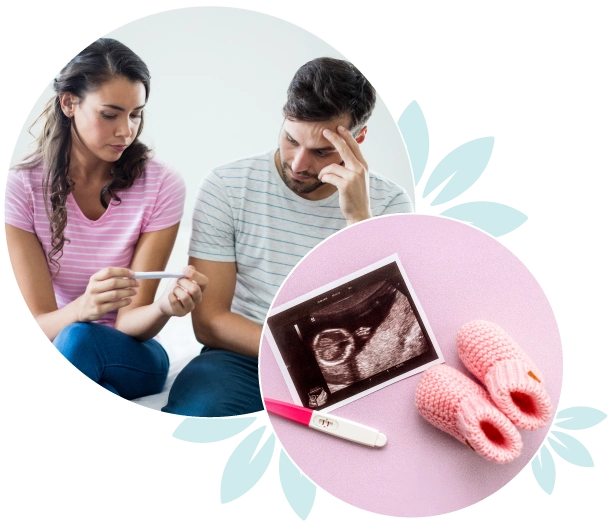Secondary infertility, should you stop trying?


Are you struggling to conceive a second child after easily having your first? Many couples face secondary infertility, a common but often unexpected challenge. This condition affects approximately 11% of couples in the United States. It changes a simple journey into a complex and challenging experience.
What is secondary infertility?
Secondary infertility occurs when individuals or couples experience trouble getting pregnant with a subsequent child, despite having previously given birth. This type of infertility is a common cause of fertility concerns.It occurs more often than in cases where couples have never been able to conceive. It usually impacts individuals in their late 30s or early 40s. This is especially true for those who are attempting to have children at a later age.Secondary Infertility Causes
Secondary infertility can arise from a variety of factors that may impact either partner.For women, reasons for infertility might include changes in reproductive health due to age, complications from prior pregnancies such as uterine scarring and uterine fibroids, or the onset of conditions like hormonal insufficiensies. Blocked fallopian tubes can also prevent conception. These factors can contribute to trouble conceiving a second child.For men, alterations in sperm characteristics such as sperm count, motility, or morphology can be significant contributors, often affected by personal health, lifestyle decisions, or aging. Decreases in sperm production and overall sperm quality are common factors.Environmental influences and lifestyle habits, such as increased body weight, elevated stress levels, and sedentary lifestyle, can also significantly influence fertility.While there are many steps you can take on your own to address secondary infertility, various medical treatments are also available, which we will explore in detail later.
What can I do about secondary infertility?
Before considering medical interventions for secondary infertility, there are proactive steps you can take to enhance your fertility. Healthy couples should typically have a 20 to 25 percent chance of conceiving each cycle.- Evaluate Your Preconception Approach: Reflect on whether you've been as attentive to tracking your fertility as with your first pregnancy. Regular cycle monitoring or using an ovulation predictor kit can significantly increase your chances of conception.
- Adjust Your Nutrition: Nutritional choices play a crucial role in fertility. Consider whether changes in your diet or increased caffeine consumption impact your fertility, and make adjustments as necessary.
- Manage Your Weight: Weight gain since your last pregnancy can affect fertility. Aim for a healthy BMI to improve your reproductive health.
- Lifestyle Considerations: Reassess your daily habits, such as drinking or insufficient sleep, which can adversely affect fertility. Consider your partner's habits, like alcohol consumption, vaping, or smoking, which can impact sperm quality.
- Check Your Health: Review any new medications or health conditions that have arisen since your last pregnancy. Sometimes, simple changes, such as switching medications or managing a health condition more effectively, can improve your chances of conceiving.
What's the difference between primary infertility and secondary infertility?
Primary infertility occurs when a woman cannot conceive her first child after trying for one year without using birth control. This type of infertility means the woman has never achieved a pregnancy.In contrast, secondary infertility happens when a woman has had one or more children but struggles to conceive again. While both situations involve challenges with conception, secondary infertility deals specifically with difficulties that appear after a previous pregnancy.
When should I make an appointment with a fertility specialist?
Deciding when to seek help for secondary infertility can depend largely on your age and previous fertility experiences.Suppose you are under 35 and have been trying to conceive for a year. In that case, it's recommended to consult with your healthcare provider or consider a referral to a fertility specialist. This timeframe allows for sufficient attempts while still addressing potential issues early.For individuals aged 35 and older, seeking guidance after six months of trying is recommended. Because fertility can change with age, early intervention can be crucial. If you or your partner is over 40, beginning with a fertility evaluation is advisable because both male and female fertility decline with age, and this can affect the overall quality of sperm.Additionally, if you or your partner have known fertility issues or a history of difficulties in conceiving, it’s wise to consult a specialist right from the start. The approach to managing secondary infertility will typically follow similar protocols used for primary infertility, focusing on identifying and treating the underlying causes effectively.Once you've decided to seek help from a fertility specialist, several treatment options can be considered based on your specific circumstances. Treatments such as In Vitro Fertilization (IVF) and Intrauterine Insemination (IUI) are among the most effective methods for addressing secondary infertility. Each method has its specifics, which can be tailored to address the underlying causes of your fertility challenges.
Tips for coping with secondary infertility
Dealing with secondary infertility involves unique emotional challenges alongside the usual difficulties of trying to conceive. Managing these feelings constructively and maintaining a balanced perspective is important.- Acknowledge Your Emotions: It's natural to feel a mix of disappointment, shock, and guilt when experiencing difficulties conceiving again, especially if your first pregnancy was straightforward. Recognize these feelings as a valid response to your situation rather than dismissing them.
- Communicate Openly: Keep the lines of communication open with your partner and discuss your feelings and frustrations. It's important to support each other through this journey and understand that it's okay to feel overwhelmed at times.
- Seek Support: Joining support groups or connecting with others facing similar issues can be incredibly helpful. These groups provide a space to share experiences and coping strategies, reducing feelings of isolation.
- Focus on Self-Care: Prioritize your physical and emotional health. Engage in activities that you find relaxing and fulfilling, which can improve your overall well-being and resilience.
- Spend Quality Time with Your Family: While dealing with fertility issues, it’s essential to cherish and make the most of your time with your existing family. This helps maintain a sense of normalcy and joy in your life.
- Explore All Options: If traditional conception methods are challenging, consider discussing other possibilities with a fertility specialist, such as artificial insemination or in vitro fertilization, which might enhance your chances of success.
- Plan Non-Fertility-Related Activities: Arrange activities with your partner unrelated to conception. This can relieve stress and strengthen your relationship, which is crucial during such trying times.


